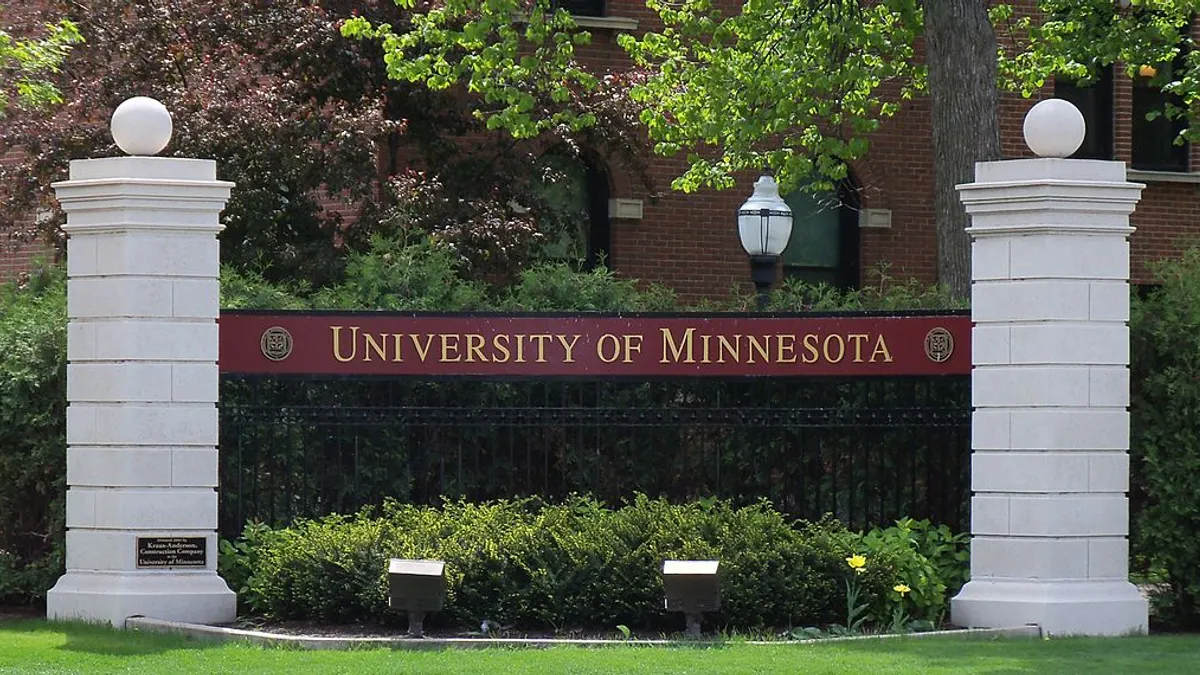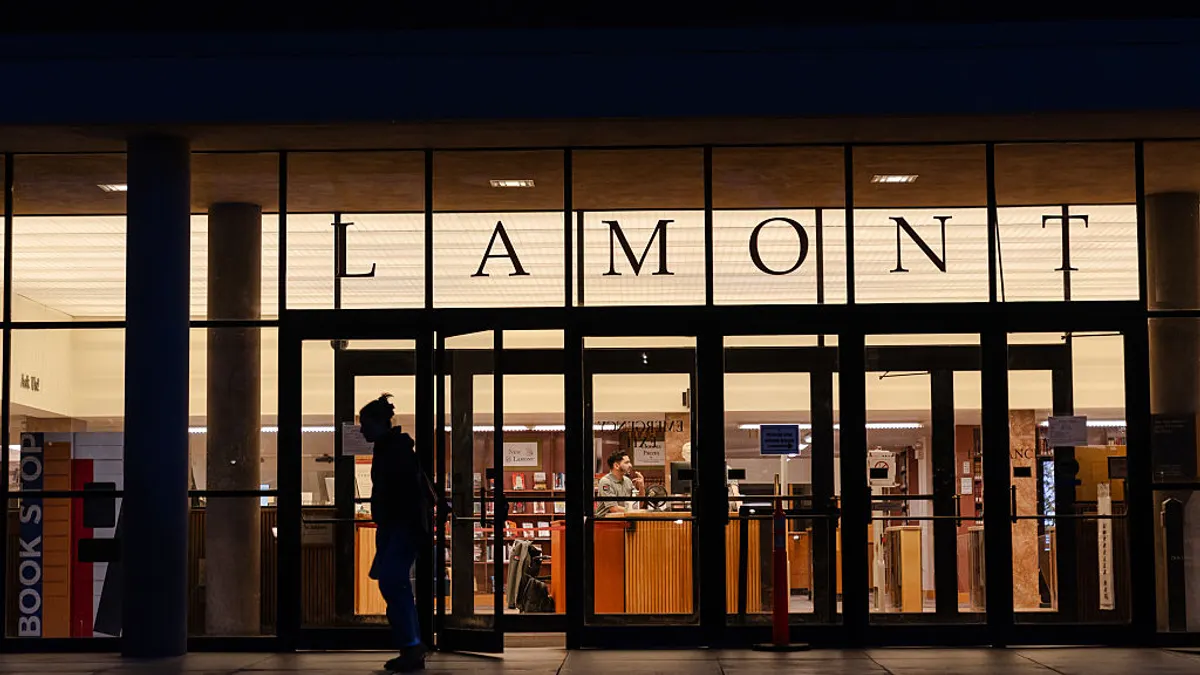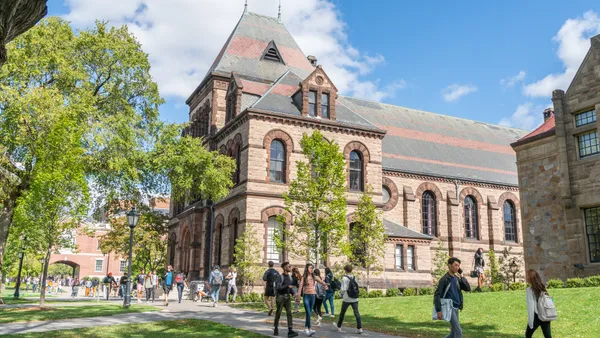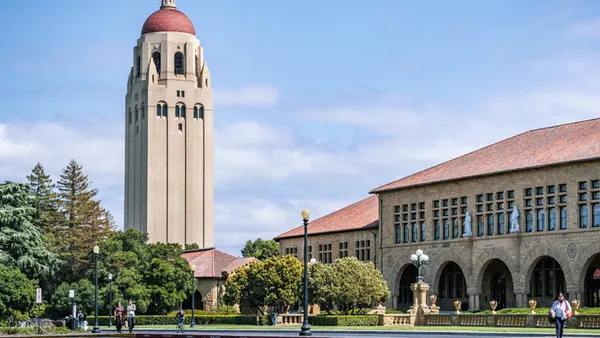Dive Brief:
- As trade-related tensions heighten between the U.S. and China, an official from the Chinese Education Ministry on Monday cautioned students about the "risks" of attending a U.S. college, The Washington Post reported.
- The official said Congress and the Trump administration had "politicized" education exchanges between the two countries, causing a "cold snap" in their relationship as it pertains to education.
- The announcement comes as U.S. colleges cut ties with Confucius Institutes over how those programs are run on American campuses and amid concerns about intellectual property protections in research.
Dive Insight:
The move dramatically links the nettlesome issue of an escalating trade war between China and the U.S. to higher education, where Chinese students account for about one-third of all international students in the U.S.
That's a key revenue stream for colleges at a time when enrollment is slumping.
Moves by the Trump administration to tighten visa policies have spurred pushback from colleges, which say it threatens their ability to recruit top international students and researchers. The administration's rhetoric has been particularly focused on China, though college leaders say current policies have been the top deterrent of international students overall.
Sarah Spreitzer, director of government and public affairs at the American Council on Education, told Education Dive that her organization is concerned about security related to sensitive science or intelligence research and recommended U.S. institutions address them.
However, she added that those concerns involve "a very narrow group" of scholars, researchers and students, and that there is a parallel concern that "the U.S. remains a welcoming place to international students."
She said ACE has asked federal agencies to do more to encourage international students to enroll in U.S. institutions, including retention of a threatened policy that allows some students to stay in the U.S. for up to three years after graduation under an Optional Practical Training program.
Growth in the program has slowed in recent years in part due to the Trump administration tightening the regulations that govern it, according to the Pew Research Center.
Officials at U.S. colleges are alarmed about the latest escalation in the dispute over international study, The Post reported in a separate article. Costas Solomou, the dean of admissions at George Washington University, told The Post that 10 Chinese students accepted to the university had backed out as of Monday. "We're all nervous about this," he told The Post.
Spreitzer echoed the comment in her assessment of the situation. "There is a concern with the Chinese government and with the U.S. government making very broad policy decisions based on these threats," she said.
She recommends U.S. institutions "continue to message that they want to remain welcoming and that international and global partnerships remain very important for (them), whether it's in education or in research."











